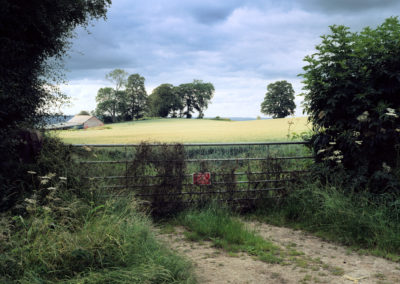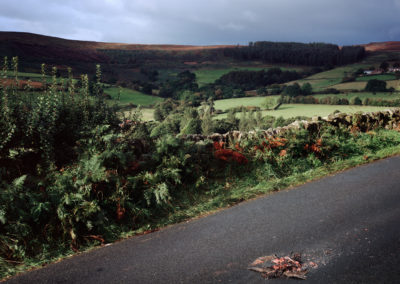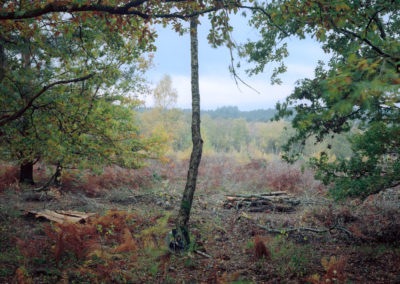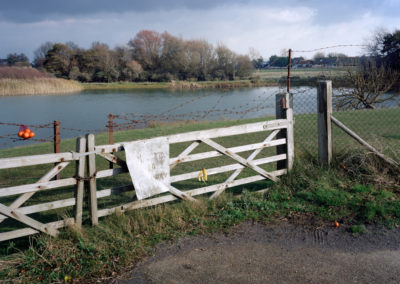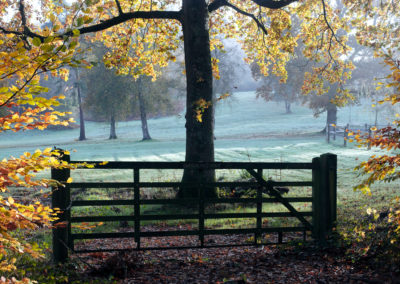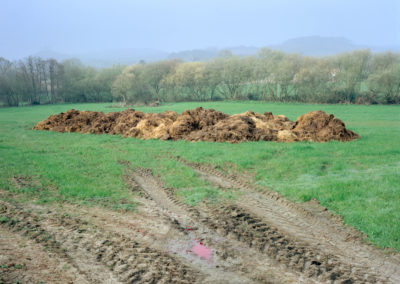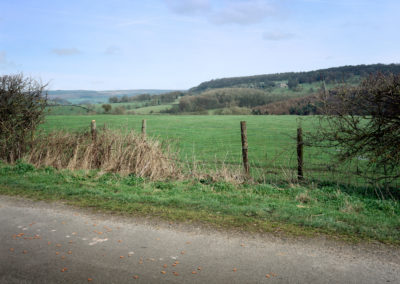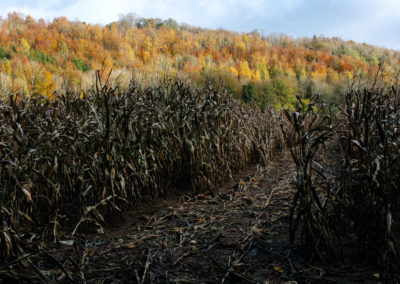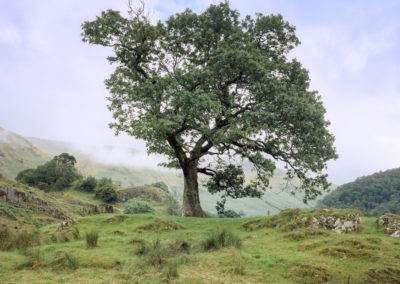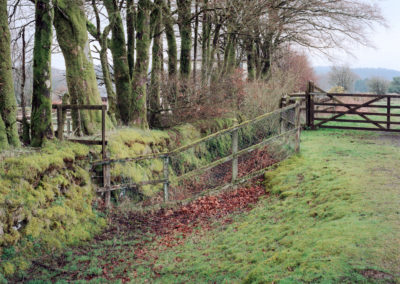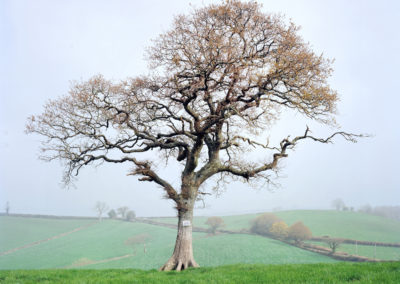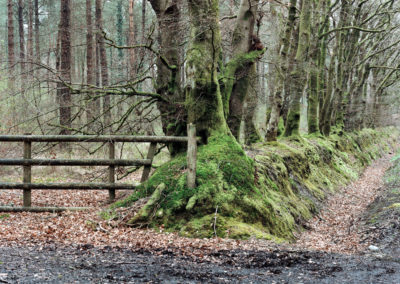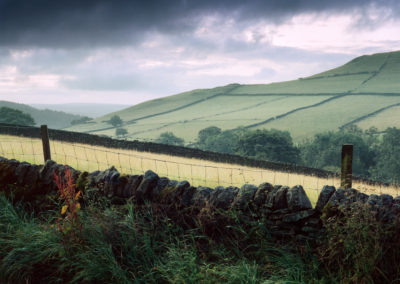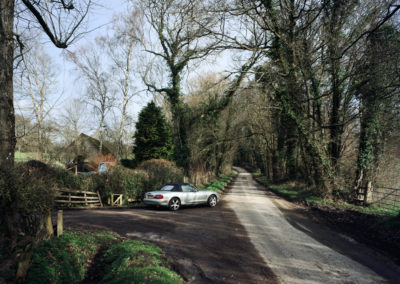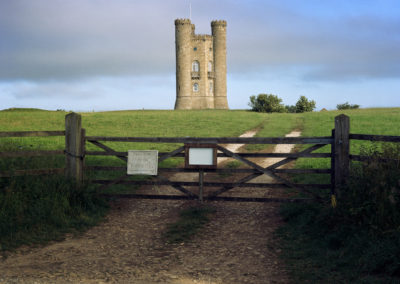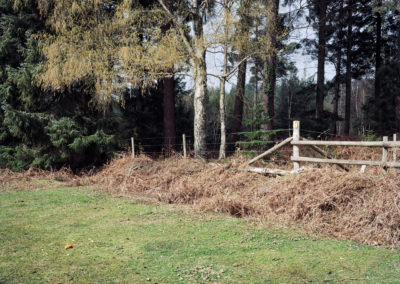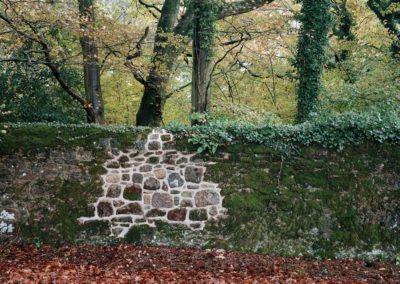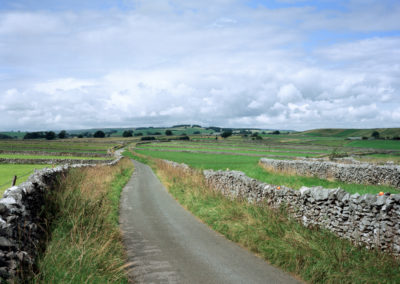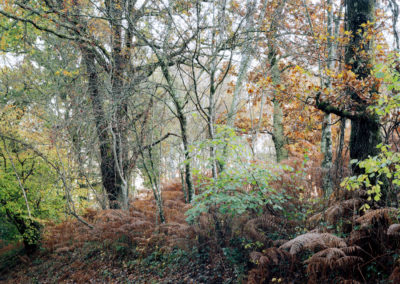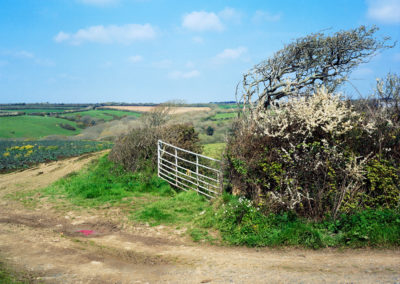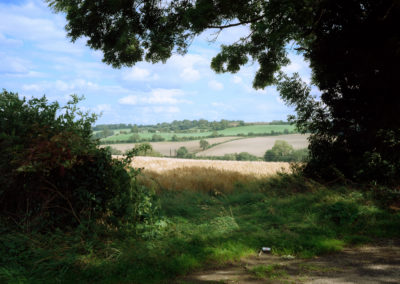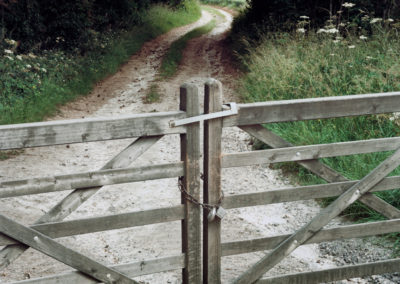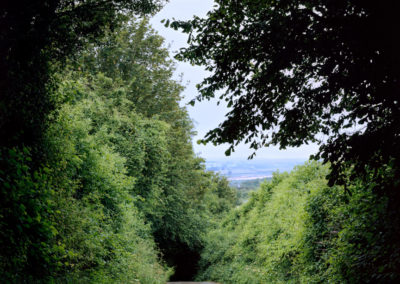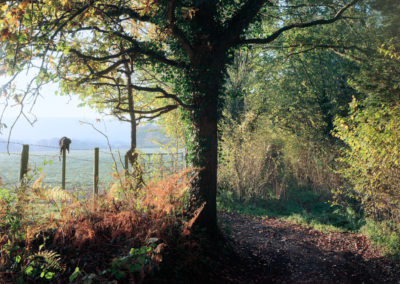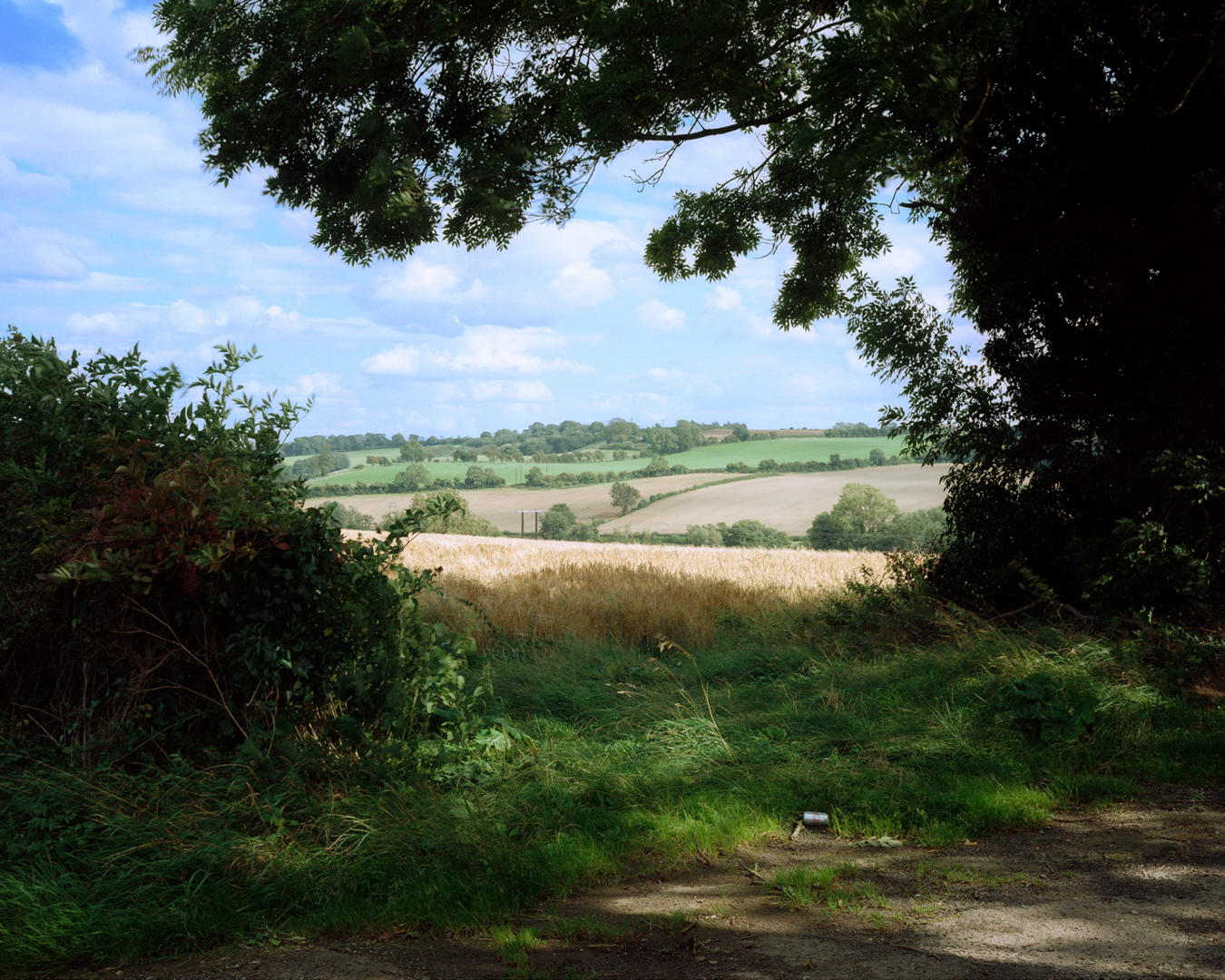
The rural walk is a well-known English cultural practice. Though it may be civil, the act of walking itself is rooted in an ideology from my own cultural background; to walk the land is to know the land, and therefore suggests belonging, entitlement and ownership. I began to survey the English countryside, becoming familiar with the island’s geography, an act of mapping that refers to imperial and colonial histories.
Pertaining to Romanticism, I appropriate the visual rules of the picturesque; traditionally used to create an illusion of social and natural harmony. The dramatic light and weather conditions combined with forensic attention to details and on-site interventions intend to provoke the ambiguous feelings of seduction and alienation. Poetic and alluring yet tinged with irony, the images seek to disrupt traditional modes of representation in a place where land ownership and social hierarchy have shaped the form and perception of the landscape for centuries.
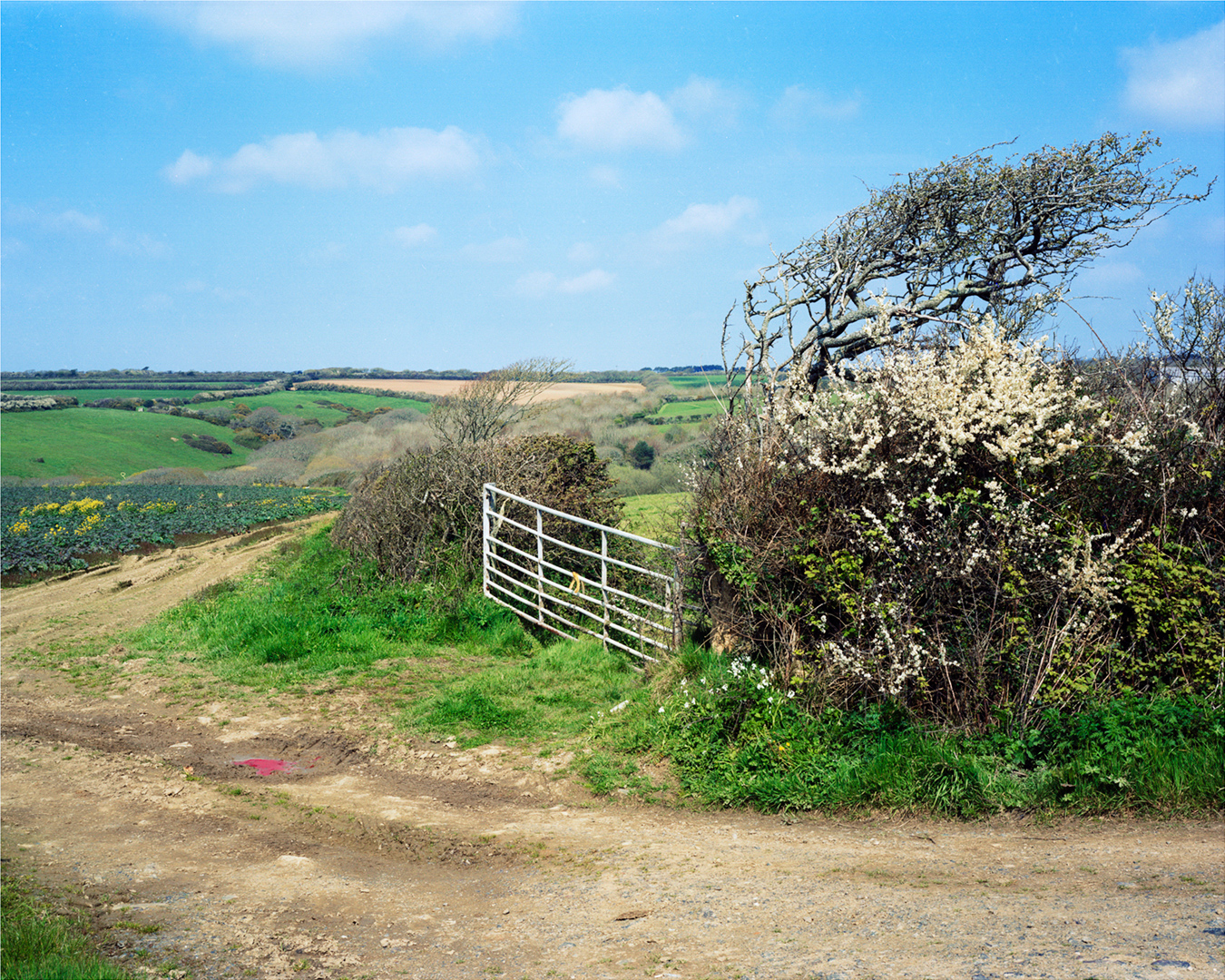
I was born, grew up and lived in Israel all my life and my relationship with the landscape starts at the place where I grew up, a small kibbutz situated right on the Lebanese border. The ongoing conflict along this border played a key role in my perception of landscape and the ambiguity it represents. After years of investigating the Israeli landscape, its geography, historical narratives and my own biography, I left Israel in 2018. In search for a new subject matter, I found myself once again drawn to questions of land and power, belonging and legitimacy.
It was the question of legitimacy within my native landscape that eventually led me to leave Israel, but the lack of legitimacy I felt towards the English landscape paralysed me. How can I copy a practice from a place I was very familiar with – its physicality and nuances – and transfer it to a place I know almost nothing about? What does it mean to be an outsider, and what position am I taking while looking at landscape as an outsider?
The outsider position, I soon realised, was constructed in the physicality of the English landscape itself. The rural landscape I encountered was divided by fences and hedges, and any attempt to photograph a certain scene depended on whether I could stop the car or find access to an area of interest, an experience of looking which I found very limiting, I was often admonished and constantly felt (and told) that I was trespassing; this was an incredibly frustrating experience, but this sentiment slowly became an important aspect of the work. The idea of looking from the outside in is something that I found really interesting in relation to my situation back in Israel when working along the borders. I guess you could question whether I was looking inside out or outside in and who is inside or outside, but when you think of boundaries, here they were directed against me. And so, I started to use them.
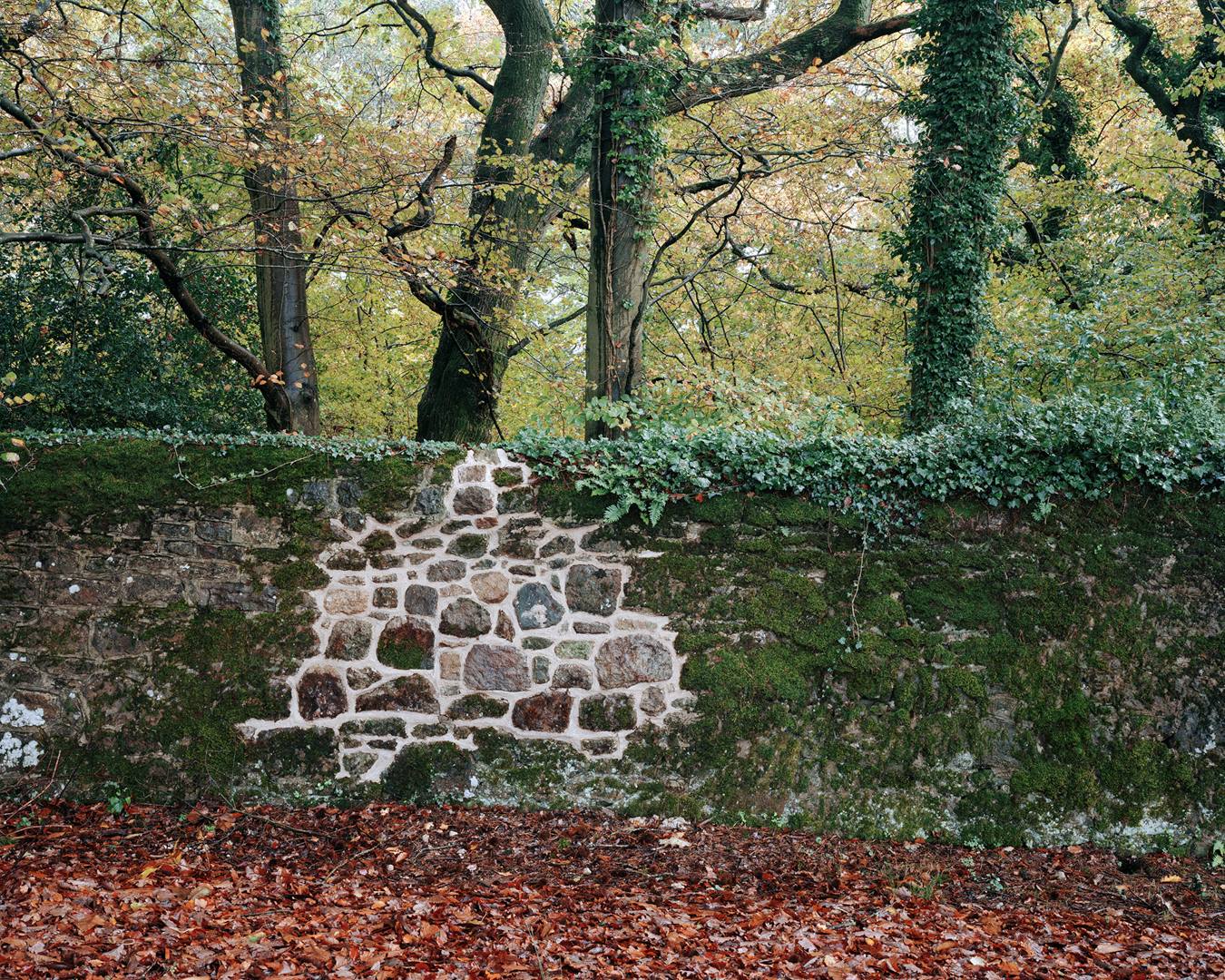
The first photograph I made in England and which is now included in this body of work is the work titled “Fruitful Encounter”, where a Banana skin and oranges are placed on the fence. In a spontaneous reaction, while waiting for the sun to return, I playfully placed my breakfast on the fence that was keeping me off the land. Only later on did I realize that this symbolic act of marking, or formally altering the scene, had real potential and this thinking started to become an important aspect of my work within the English landscapes. From this early intervention, I constantly thought of different ways to mark my presence or point the viewer to the obstacles that kept me out of places. The most extreme example of the interventions or the idea of inserting myself into the landscape is the work tilted “Landscape With Oak Trees and A Hunter” which refers to a painting by Casper David Friedrich with the same title, where I used a round mirror and placed it in a way that reflects myself at the time of capturing the photograph. In Friedrich’s work, I believe the hunter is hidden as he was trying to get rid of the need for the human figure within the depiction of landscape, and for me it was a way to reappear in a new landscape and to some extent trespass into the history of art and romantic ideas.
A selection of the images from the series are shown below (click to view image at full size / original format).
ABOUT ROEI GREENBERG
Roei Greenberg is a London based, Israeli artist. He has recently completed an MA Photography, with distinction from The Royal College of Art. He also holds a BA in Photography from Minshar Art College, Tel Aviv.
His photographic practice is concerned with landscape as a complex intersection between culture, geography and autobiography. The effects of human activity on land, political borders and ecology are amongst the issues investigated in his work. Through the use of large format camera and film, he create a multi-layered photographic perspectives, seeking to disrupt traditional modes of landscape representation. He has dedicated years to investigating the Israeli landscape, its geography and historical narratives in relation to his own biography; leading to his award winning series entitled Along the Break. In 2018, he left Israel to attend the RCA, and in his search for a new subject matter, found himself once again drawn to questions of land and power, belonging and legitimacy. His work then, combines an objective aesthetic with a strong emphasis on thorough research.
Greenberg’s work has received vast recognition and exposure, showing in museums and galleries such as: Aperture Gallery (NY), South London Gallery, Leeds Art Gallery, The Benaki Museum (Athens), the Israel Museum (Tel-Aviv) and Webber Gallery (London), to name a few. As well as several nominations and awards such as the Sony World Photography Awards (2014, landscape category), Magnum Photography Awards (2017), Meitar Photography Award (2017), Arles Voies Off Awards (2019), Prix Levallois (2017+2020), The Genesis Postgraduate Bursary Award (2020) and The Human Rights Photography Prize (2020). He was selected for the Bloomberg New Contemporaries in 2019, and his recent body of work entitled English Encounters, was selected by Professor Andreas Gursky, when invited to curate his selection from the RCA 2020 graduates.
Website: roeigreenbergphotography.com
Instagram: @roei_greenberg
CREDITS
Unless otherwise stated, all words and images in this article are © Roei Greenberg

